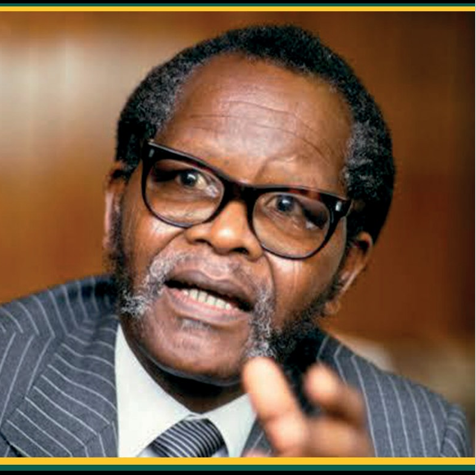Introduction
The legacy of OR Tambo, our President General of 24 years, is one of the most complex and sophisticated legacies produced by a revolution. Comrade OR stood head above shoulders amongst prominent revolutionaries of the post-World War II Era that saw the defeat of colonial rule across the world. He was simultaneously a humanist, a radical revolutionary, a teacher, a diplomat, a strategist, and a master tactician, to mention but a few of his characteristics.
We reflect on the relevance of the giant of our movement to local government by exploring three themes from his wide-ranging legacy and predisposition, and these are the cumulative effect of transformation, choosing the People and our Humanity as Local Government Praxis.
Local Government: A site of the cumulative effect of transformation
“It is in this context that we look with confidence, firstly to the Brussels Conference in Namibia, which started early this week, secondly, to the World Conference on Sanctions scheduled to take place in Paris next month, and the great Summit of the Non-Aligned Movement in Harare later in the year. The cumulative effect of these powerful forces on the fortunes and misfortunes of the Pretoria regime, on the issues of sanctions and other international pressures, should mark a distinct turning point in the fortunes of apartheid”
(OR Tambo 9 May 1986, New Delhi)
True to his strategic nature, OR systematically mobilized progressive forces globally to isolate South Africa and force it to its knees. This he achieved through a strategic process of cumulative action, where he, in concert with the entire ANC system, engineered complementary action of divergent forces to act in unison against the apartheid regime. It is this strategic praxis that is essential to break the back of the system of apartheid space economy as displayed in our localities. The key features of the Apartheid space economy include, but not limited to, dislocation of African working class from places of work, inefficient transport systems, unreliable utilities due to distance and quality, socially constructed marginalization of the African youth from levers of economic control and high-value assets.
These features are reproduced under democratic local government thus preserving apartheid colonial relations in the local state. This possible because our collective action, we argue, is disjointed, quantitative, and unsystematic.
The praxis of cumulative effect is by design continuous, qualitative, and systematic. It is carefully constructed to be a series of multi-dimensional interrelated steps that deliberately reverse a pervasive injustice through consistent action by a multiplicity of actors.
The ANC must align municipalities, developers, and civil society, in general, to act in unison in integrating municipal spaces and cumulatively breaking dislocations of the working class and the poor. The transport systems must be both cheaper and time-saving.
Utilities must be modularized and decentralized for continuous functioning and affordability. The social construction of economic mainstreaming cannot be solely war-cry of the ANC but rather all social forces. Again, deconstructing a social system means all the divergent actors need to act in unison through cumulative effect in transforming society. The ANC should frown upon anything to the contrary of cumulative effect. No local leadership should be allowed to put their ambitions for personal legacy above that of the cumulative effect of ANC strategy. Subordinating our leadership practice to ANC strategic disposition will require a qualitatively different generation of local leaders. We need leaders that can appeal to all sectors of the community and be persuasive enough to induce complementary steps to achieve cumulative effect.

